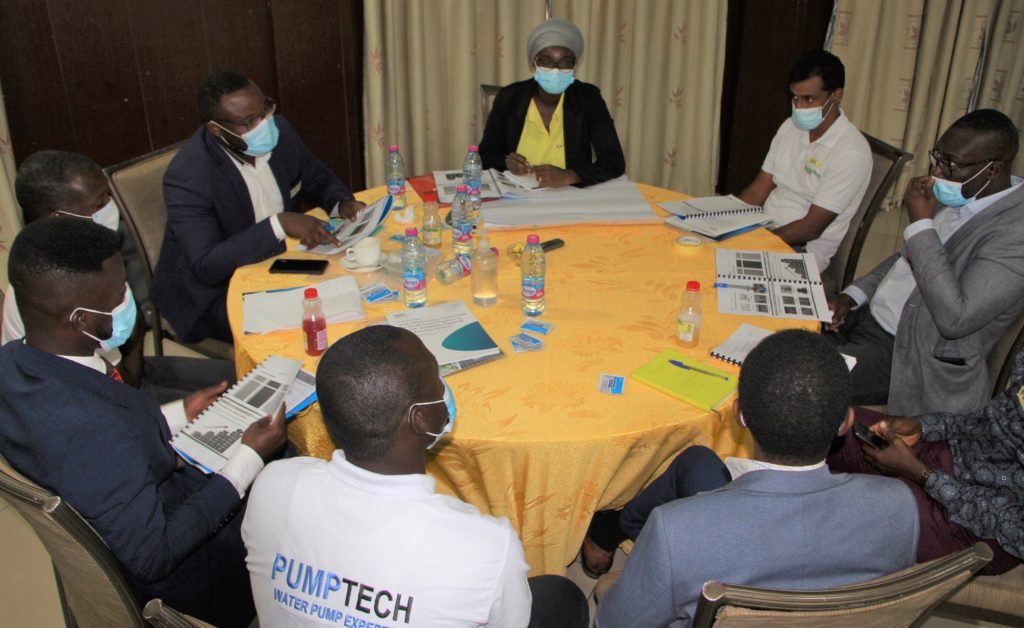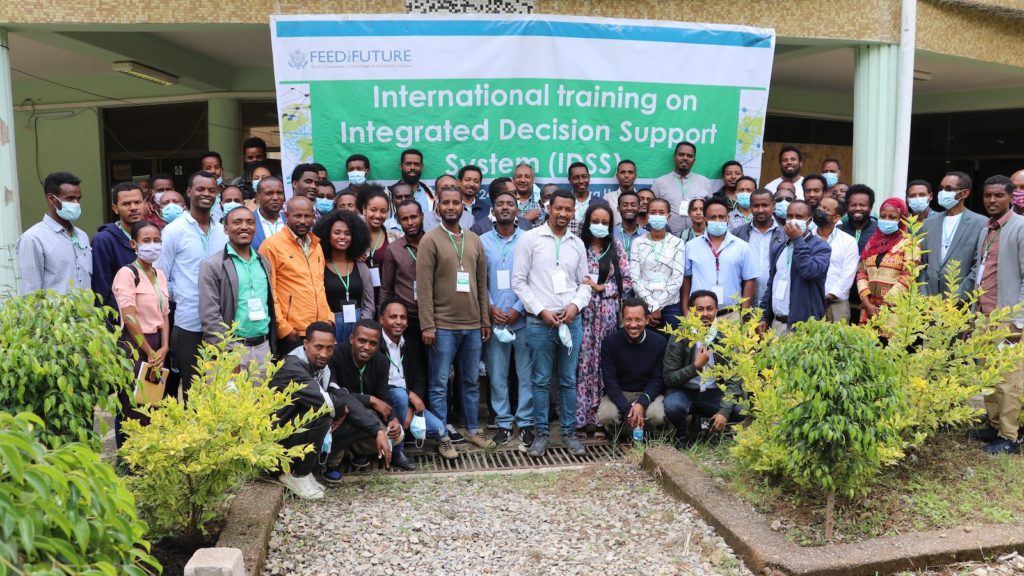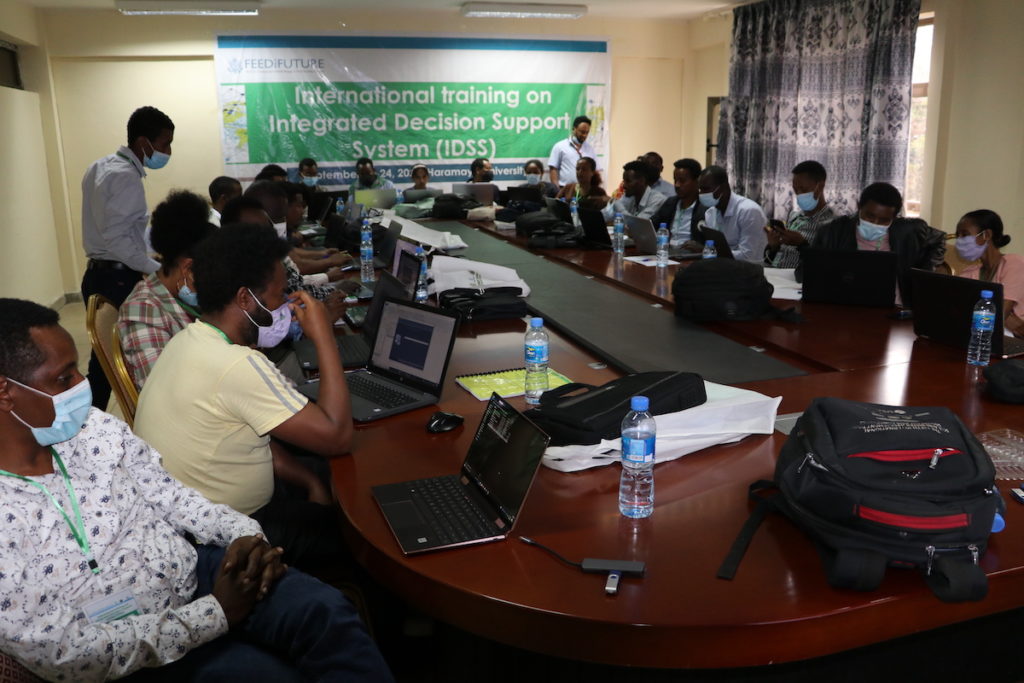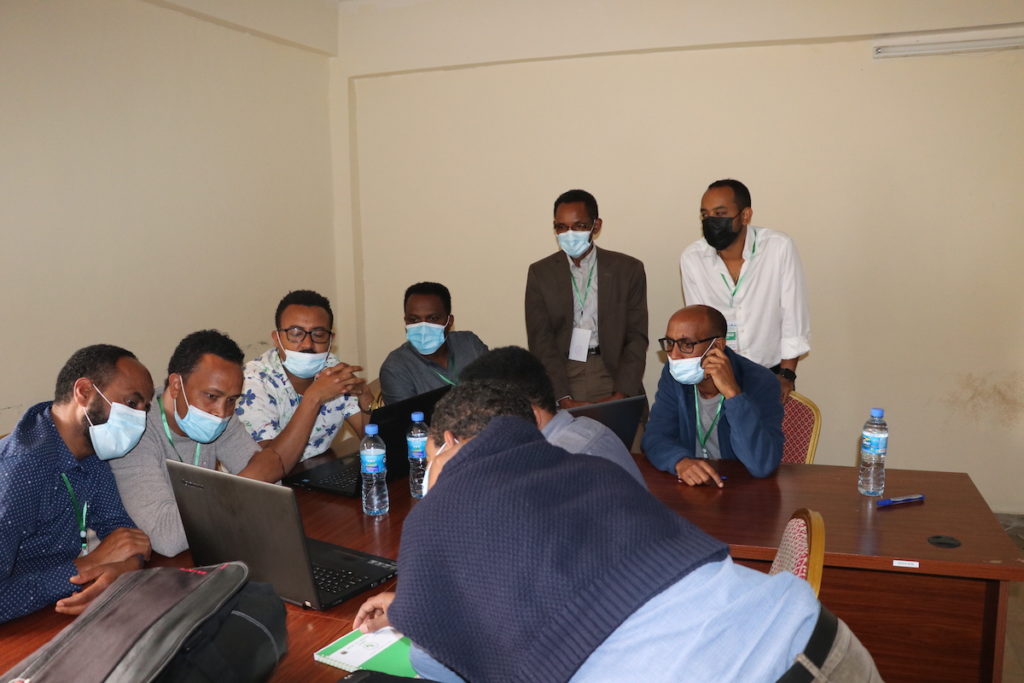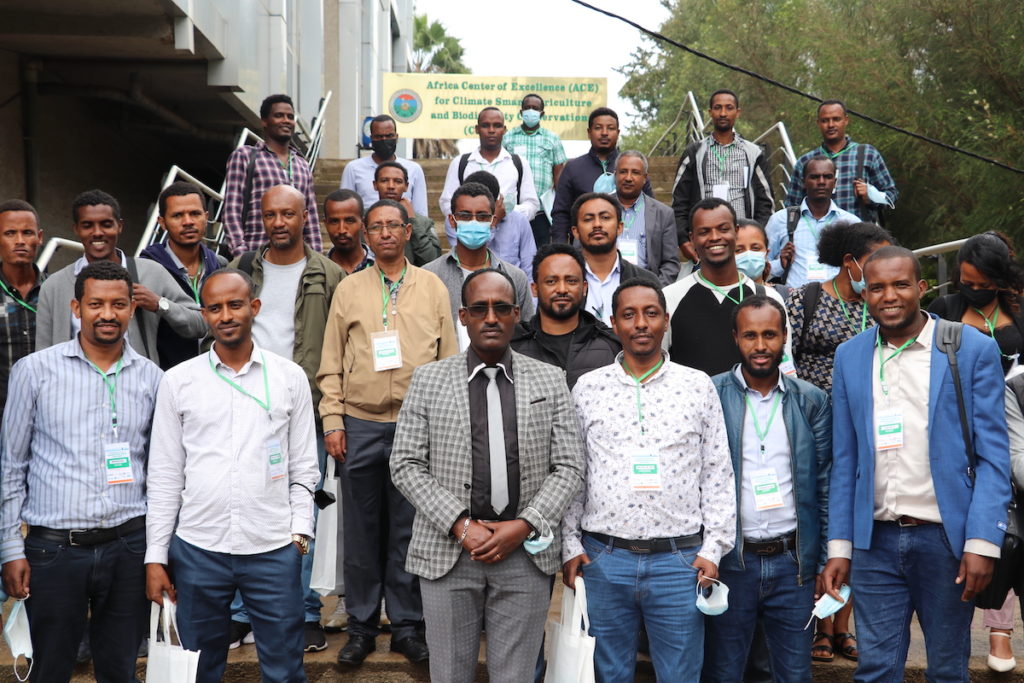In Ghana, the cocoa sector represents 20 to 25 percent of the total export earnings and is an important source of employment and income for about four million households. But in recent decades, dry spells and droughts have challenged cocoa farmers and hampered production.
The Feed the Future Innovation Lab for Small Scale Irrigation (ILSSI) is partnering with the Kwame Nkrumah University of Science and Technology (KNUST) in Ghana to investigate how small scale irrigation practices can help protect Ghana’s cocoa production as climate change impacts intensify in the future.
Increased year-round, long-term productivity
Agriculture in Ghana is mainly rainfed and therefore changes in weather conditions greatly affect the productivity of crops. Over the years, Ghana has recorded wavering trends in cocoa yields, which have been attributed to erratic rainfall, including longer dry spells during the rainy seasons. As a result, farmers’ incomes have dwindled. This is the current status in the cocoa sector, as explained by Janet Afia Boadu, a second-year MPhil Environmental Science student at KNUST, who is collecting data to support the investigation.
“Implementation of irrigation systems could help boost cocoa productivity by increasing yield all year round – and it could support young cocoa plants. Increase in productivity will also improve the livelihoods of farmers by raising their incomes. Finally, irrigation systems have added advantages in that they can help nurture other crops that could be used for shade or food,” said Boadu.
Currently, cocoa production is declining for mature trees, and an estimated 40 percent of new cocoa seedlings die before reaching maturity. While there are three cocoa seasons per year, the output across those seasons remains below potential. Government agencies, research institutions, and private sector actors involved in the cocoa sector are therefore advocating for the use of supplementary irrigation and improved soil and water management for cocoa seedlings, mature trees, and inter-cropping.
To understand how and where irrigation might support the cocoa sector, Boadu’s fieldwork is focused on two aspects:
“I’m using questionnaires to establish baseline conditions, with special emphasis on the livelihoods and agricultural production, in the Ashanti and Western Regions of Ghana. Second, I’m sampling water and soil to analyze the environmental quality that supports their agricultural production to find eco-friendly strategies—for example using recycled agricultural waste—to restore cocoa farms.”


Challenges abound for cocoa farmers
The first, major challenge cocoa farmers face is the lack of irrigation facilities that could help them adapt to climate change effects, according to Dr Isaac K. Tetteh, Associate Professor of Climate (Atmospheric) and Environmental Science at KNUST, who leads the ILSSI-supported KNUST research on cocoa, irrigation, and climate adaptation.
Boadu elaborated by adding that even with irrigation technologies available in the market, farmers are likely to encounter some challenges in developing irrigation on their cocoa farms. For example, farmers still need access to enough, and clean enough, water for irrigation to be a suitable solution. Unregulated, open-pit gold mining is widespread in Ghana, which causes pollution with sediments and chemicals flowing into nearby water bodies in important cocoa-growing areas.
Another challenge is that the installation, repair, and maintenance of an irrigation system – from boreholes to motorized pumps – is expensive, and farmers have limited access to credit, while financial assistance from cocoa-buying companies, governmental and non-governmental agencies is inadequate.
“The maintenance of irrigation system sometimes requires technical know-how that might not be common with farmers and extension officers. This might stifle daily operation and minor maintenance and would affect the effectiveness and durability of the systems,” said Boadu. High-quality irrigation technologies are needed to minimize risks for farmers’ investments in irrigation.
Dr Tetteh also listed high costs of pesticides to control pests and diseases, limited mechanization, low prices, and decreasing availability of land as significant challenges. The lack of access to water may also worsen some of these factors.
“Until the biggest challenges listed are adequately addressed, the future might look bleak, especially for young cocoa farmers,” said Dr Tetteh.
Innovation and research
Strong research collaborations between the departments of the Colleges of Science and Agriculture and Natural Resources at KNUST, the Cocoa Research Institute of Ghana, and international research programs such as ILSSI do exist. It is through these partnerships that innovative research could bring practical solutions to some of these challenges, said Dr Tetteh.
“However, this also calls for funding to ensure quality research, the findings of which can be disseminated to the grassroot level for enhancement of cocoa production,” he emphasized.
Dr Tetteh also highlighted the role of young academics, explaining that mentorship is key for graduate students to become research-oriented, critical thinkers, analytical, problem-solvers, and entrepreneurs:
“The outcome of this research path, especially in the area of science and technology, will surely play significant and complementary roles in addressing some of the major challenges unique to cocoa farmers and bring a new lease of hope to many rural folks whose primary occupation is agriculture.”
For Boadu, her fieldwork so far has already had an impact on her thinking about her future research career:
“I have witnessed rivers and lakes polluted with wastes from mining, and that has really emphasized to me the need for high-quality water resources for irrigation. I’ve gained confidence to explore the various remediation technologies for water and sediments, and I would like to explore and design filters to be installed in irrigation systems to remove pollutants,” she said.
In these ways, partnerships for innovation and research could support farmers in Ghana to overcome climate change challenges, restore their cocoa farms, and secure sustainable livelihoods in the future. These advances not only would secure farmers’ livelihoods now and in the long term, but also enable them to maintain and grow the cocoa sector and its contributions to Ghana’s economy.

